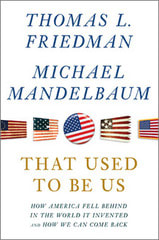How to Read Haruki Murakami
村上春樹をどう読むか
Why we should stop looking for hidden meanings in the fantastical worlds of Japan’s cult novelist. 何故、私達は立ち止まって日本の流行作家のファンタジーの世界の中に隠れている意味を探そうとするのだろうか。
村上作品の読後感として多くの「?」を抱え込むというのがある。あえて分析し結論を出さずに「多くの謎」を抱え込み、?を楽しむ、これが大人の態度だ。こういう書評を訳していると、訳の限界と同時に可能性も感じる。「Something lost in translation !」でも可能性はある。 評者の言わんとするところは掬えたと思う。たぶん英語の楽しさはここにある。
by Emily Parker | December 5, 2011 12:00 AM EST
When Haruki Murakami agreed to let me interview him in his Hawaii home, I couldn’t believe my good fortune. It was 2006, and Murakami was one of my favorite writers. I frantically underlined passages of his work, searching for clues and connections between the talking animals, labyrinths, and historical references that dotted his prose. I couldn’t wait to ask the author in person: what does it all mean?
村上春樹が彼のハワイの自宅で私のインタビューに応じてくれると知って、私は自分の幸運が信じられなかった。 それは2006年のことだった。 村上は私の好きな作家の一人だった。 私は狂ったように、彼の作品に再度目を通し、話す動物や、複雑な関係そして彼の散文の中に点在する歴史的な参照など、それらの繋がりや手がかりを求めて、気になる文章に線を引いた。 私は、この作家に直接聞きたくて仕方なかった。 つまり・・これは一体何を意味しているのですか? ・・・・と。
Murakami, it turned out, didn’t seem to know. While he spoke eloquently about history and the Japanese education system, the author seemed peculiarly detached from the products of his own imagination. It was as if his novels emerged from some sub-conscious passageway whose door slammed shut once he put down his pen. “When I’m not writing, they are gone,” Murakami said of the mysterious creatures that populate his novels. “I don’t even dream.”
村上自身、分らないということだった。 彼は歴史や日本の教育制度など雄弁に話してくれたが、奇妙なことに、この作家は彼自身の創造力の精華である作品から切り離されているように思えたのだ。 それは、あたかも彼の小説が彼のある潜在意識の抜け道から生まれたもので、その出口の扉は彼が小説を上梓したとたんピシャリと閉じられているようだった。 「私が執筆していない時は、それらは全て意識の外にあります。」と村上は彼の小説で人気のミステリアスな動物について語った。「夢にもそれらは出てきませんよ。」
I was dismayed. I’d always thought of Murakami’s work as a treasure chest of meaning, and now I’d learned there was no master key. I took a five-year vacation from Murakami. So it was with some reluctance that I picked up his new opus, 1Q84, whose plot seemed nonsensical even by Murakami standards. But now I can confidently say that not only did I finish the book, I even enjoyed it. I just stopped searching for hidden meanings, and I suggest you do too.
私は狼狽した。 私はてっきり、村上の作品は色々な隠喩や意味の宝庫だと勝手に思い込んでいたが、そこには、その扉を開けるマスターキーなど無かったことを知らされた。 以来、私は村上作品に距離を置いて、5年ほど読むことは無かった。 そういうこともあって、この新しい彼の作品を取り上げるのに少し気が進まなかったのである。ましてその作品1Q84は、そのプロットからして、村上のこれまでの基準からみてもナンセンスに思えたのだ。 しかし、いまハッキリと自信をもって言えるのは、全部読み終えただけでなく、私はその作品を十分に楽しんでいるということだ。 私は、そこに隠された意味を考るのをやめたのだ、あなたにもそのように隠された意味を考えずに読むことをお勧めする。

Master of the subconscious: Murakami’s latest opus is greater than the sum of its parts, Gueorgui Pinkhassov / Magnum 潜在意識の達人:村上のこの作品は部分の和を、総体が超えている。ゲオルギー・ピンカソフ(写真家)
Here are a few other tips for reading 1Q84: ここに1Q84を読む上での幾つかのヒントを紹介しよう。
The whole is greater than the sum of its parts. Murakami’s strength is in his storytelling, his imagination, and his ability to lure readers into an unrecognizable universe. At 925 pages, 1Q84 is a serious commitment, not only because we’ve become accustomed to 140-character soundbites. But length has its benefits too. The more time you spend in Murakami’s world, the less you question your surroundings. And the story of 1Q84, as crazy as it will sound from the description that follows, is captivating in its own way. 1Q84 tells the parallel stories of Aomame and Tengo, two characters with a deep connection from the past. Aomame is an assassin who targets perpetrators of domestic violence. She sets out to kill an enigmatic cult leader who has been victimizing young girls. Tengo is a math teacher and aspiring novelist who rewrites “Air Chrysalis,” an imaginative but terribly written work by a girl named Fuka-Eri, who escaped this very same cult. Somewhere in all this, Aomame and Tengo fall out of the year 1984 and into 1Q84, a parallel universe where there are two moons. The cult commissions a semitragic villain named Ushikawa to trip them up.
全体は、その部分の総和よりも大きい。 村上作品の強さは、彼のストーリーの語りの巧みさであり、創造力であり、読者を「認識不能な空間」へ誘う能力だ。 925ページに及ぶ1Q84は驚くべき大作である、これは、なにも我々が140文字制限のサウンドバイト(ワンフレーズのキャッチコピー)に慣れ過ぎているせいだけではない。 しかし、長さはそのメリットもあるのだ。 村上の作品に、より時間を費やせば、費やすほど、多分あなたは周りが気にならなくなる、つまり没頭できるのだ。 1Q84の物語は、それが辿る記述から響いてくる圧倒的世界に、それ独特の方法で我々を虜にするのである。 1Q84は青豆と天吾のふたりの同時並行に進む物語展開となっている。この二人の登場人物は過去において深い絆で結ばれている。青豆はDVの犯罪者を標的とする暗殺者である。 彼女は若い女性が犠牲者になっている謎めいたカルト集団の教祖の暗殺にとりかかる。 天吾は数学教師で野心ある小説家でもあり、この同じカルト集団から逃れたフカエリという少女の想像力はあるが文章が拙い作品「空気さなぎ」をリライト(表の著者)している。 この世界のどこかで、青豆と天吾は1984年から、スリップして1Q84の世界にスリップしてしまう。そこは現実世界とのパラレル空間であり、そこには月が二つある。 カルト集団は、牛河という悲哀を帯びた悪党に委託して彼らを付け狙わせる。
1Q84’s overall story is stronger than some of its individual phrases, and certain images are repeated too many times. Yes, we know that Ushikawa has a misshapen head, that the second moon is green, that Fuka-Eri doesn’t use question marks, and that calls from Tengo’s editor have a particular ring. These repetitions add length and little more. But let them go. Ultimately, they don’t obstruct the narrative tide.
1Q84では、個々のフレーズや、あるイメージが繰り返し表現されるが、全体の物語の展開がより強いメッセージとして読者に伝わる。 そう、我々は牛河の頭が歪んでいること、二つ目の月が緑色がかっていること、フカエリが疑問形で話さないこと、天吾の編集者からの電話が相互に特別な連環で繋がっていることを知るのだ。 これらが繰り返し小説の中に現れて、やや冗長の感はあるが、それも構わない。 最終的に、それらが全体のストーリー展開の流れを妨げていないからだ。

IQ84 by Haruki Murakami
Be one with the Japanese. Japanese cultural phenomena don’t always translate so well overseas. And yet Murakami has a truly dedicated following all over the world. Some would argue that he isn’t a “representative” Japanese writer, in part because his books reference the likes of Sonny and Cher. There’s also the fact that he occasionally refers to his own Japanese characters as “inscrutable.” Still, there’s no question that Murakami somehow captures the tone and rhythm of Japanese life, which in part explains why his books fly off the shelves there. Certain characters in 1Q84, most notably an NHK fee collector and a cram-school instructor, illuminate particular segments of Japanese society. At the same time, Murakami’s books touch on universal sentiments of fear and vengeance and enduring love. So enjoy living with the Japanese, at least for 925 pages, under the same two moons.
日本人と共にある一人。日本の文化の特徴は必ずしもいつも真っ当に海外に伝わっているわけではない。なのに、村上は世界中に熱狂的なファンを抱えている。 ある人は彼を日本人作家の代表だとは思わないと言う人もいる。なぜなら彼の作品の参照が「ソニー&シェール」だったりするからだ。 また、当の彼自身が時々自分の日本人的特徴に言及して、測りかねるところがあるとも言っている。 それでもなお、村上がとにかく日本の色彩や音調(雰囲気)を作品に織り込んでいるのは疑いのない事実で、それが海外で飛ぶように売れる一つの理由でもある。 確かに1Q84の登場人物は、NHKの集金人であったり、塾の講師だったり、日本社会の独特の断片を映し出している。 それと同時に村上の作品は世界共通の感情、つまり恐怖や復讐心そして耐え忍ぶ愛のようなものを描いている。 だから、同じ二つの月の下で、少なくとも925ページの間、日本人との人生を楽しんで欲しい。
Murakami is not George Orwell. This comparison is hard to avoid, given the title of 1Q84, its direct references to Orwell, and the inclusion of the sentence “Big Brother Is Watching You.” Yet while Orwell’s “Big Brother” represents some dark, totalitarian force, the characters known as “Little People” that flit in and out of 1Q84 are far more elusive. We learn that they are “an invisible presence. We can’t even tell whether they are good or evil, or whether they have any substance or not.” We also know that they come out of the mouth of a dead goat. Orwell’s seemingly deliberate decisions about metaphor and allegory help ensure that author and reader interpret the world in the same way. Put more simply, Orwell had an agenda. Murakami, on the other hand, sets his images free and leaves us to decipher them at will. Or, better yet, to not decipher them at all. If Murakami is writing from his subconscious, after all, then why are we consciously analyzing him? Yuko, my closest friend in Japan, perhaps gives the best advice for reading Murakami: “I never try to figure out what he is trying to say. I simply enjoy the flow of his words and transfer them into my own film in my head. You know what I mean?”
村上はジョウジ・オーウェルとは違う。 この比較は避けて通れない。なぜならタイトルの1Q84がオーウェルの作品1984を直接意識しているし、「ビッグブラザーがあなたを監視している」という文章も含まれているのだから。 とはいえ、オーウェルに出てくるビッグブラザーは暗黒の圧倒的な支配者として表現されているが、村上の1Q84の中で現れては消えるトルピープルは、もっと捉えどころのない存在だ。 我々はそれらが見えない存在だということを知る。 我々は彼らが善なのか、邪悪なのかも言えないし、その存在も曖昧模糊としている。 我々は彼らが死んだ山羊の口から出てきたのを知っている。 オーウェルの作品のビッグブラザーは隠喩や寓意について周到に計算されており、それが読者と著者が世界を同じ方向から解釈することを促している。 もっと簡単に言えば、オーウェルの作品にはちゃんとした海路地図(アジェンダ)がある。 一方の村上は自分のイメージを自由に泳がせ、我々に勝手に読み解いてくれと途方に暮れさせるのである。 それも読み解かなくても良いというほどの突き話しかただ。 村上が潜在意識(意識下)で、この作品を書いているとしたら、なんで読者の我々が意識して彼を分析する必要があるのか。 私の最も親しいユーコのアドバイスが肯綮に中っているように思える。 つまり「私は、彼が何を言いたいのかなんて、ちっとも考えないわ、私は単純に彼の言葉の調べを楽しみ、それを私の頭の中のフィルムに映し込んでいくの。 わかるわね私の言いたいこと?」
©2011 The Newsweek/Daily Beast Company LLC
村上春樹をどう読むか
Why we should stop looking for hidden meanings in the fantastical worlds of Japan’s cult novelist. 何故、私達は立ち止まって日本の流行作家のファンタジーの世界の中に隠れている意味を探そうとするのだろうか。
村上作品の読後感として多くの「?」を抱え込むというのがある。あえて分析し結論を出さずに「多くの謎」を抱え込み、?を楽しむ、これが大人の態度だ。こういう書評を訳していると、訳の限界と同時に可能性も感じる。「Something lost in translation !」でも可能性はある。 評者の言わんとするところは掬えたと思う。たぶん英語の楽しさはここにある。
by Emily Parker | December 5, 2011 12:00 AM EST
When Haruki Murakami agreed to let me interview him in his Hawaii home, I couldn’t believe my good fortune. It was 2006, and Murakami was one of my favorite writers. I frantically underlined passages of his work, searching for clues and connections between the talking animals, labyrinths, and historical references that dotted his prose. I couldn’t wait to ask the author in person: what does it all mean?
村上春樹が彼のハワイの自宅で私のインタビューに応じてくれると知って、私は自分の幸運が信じられなかった。 それは2006年のことだった。 村上は私の好きな作家の一人だった。 私は狂ったように、彼の作品に再度目を通し、話す動物や、複雑な関係そして彼の散文の中に点在する歴史的な参照など、それらの繋がりや手がかりを求めて、気になる文章に線を引いた。 私は、この作家に直接聞きたくて仕方なかった。 つまり・・これは一体何を意味しているのですか? ・・・・と。
Murakami, it turned out, didn’t seem to know. While he spoke eloquently about history and the Japanese education system, the author seemed peculiarly detached from the products of his own imagination. It was as if his novels emerged from some sub-conscious passageway whose door slammed shut once he put down his pen. “When I’m not writing, they are gone,” Murakami said of the mysterious creatures that populate his novels. “I don’t even dream.”
村上自身、分らないということだった。 彼は歴史や日本の教育制度など雄弁に話してくれたが、奇妙なことに、この作家は彼自身の創造力の精華である作品から切り離されているように思えたのだ。 それは、あたかも彼の小説が彼のある潜在意識の抜け道から生まれたもので、その出口の扉は彼が小説を上梓したとたんピシャリと閉じられているようだった。 「私が執筆していない時は、それらは全て意識の外にあります。」と村上は彼の小説で人気のミステリアスな動物について語った。「夢にもそれらは出てきませんよ。」
I was dismayed. I’d always thought of Murakami’s work as a treasure chest of meaning, and now I’d learned there was no master key. I took a five-year vacation from Murakami. So it was with some reluctance that I picked up his new opus, 1Q84, whose plot seemed nonsensical even by Murakami standards. But now I can confidently say that not only did I finish the book, I even enjoyed it. I just stopped searching for hidden meanings, and I suggest you do too.
私は狼狽した。 私はてっきり、村上の作品は色々な隠喩や意味の宝庫だと勝手に思い込んでいたが、そこには、その扉を開けるマスターキーなど無かったことを知らされた。 以来、私は村上作品に距離を置いて、5年ほど読むことは無かった。 そういうこともあって、この新しい彼の作品を取り上げるのに少し気が進まなかったのである。ましてその作品1Q84は、そのプロットからして、村上のこれまでの基準からみてもナンセンスに思えたのだ。 しかし、いまハッキリと自信をもって言えるのは、全部読み終えただけでなく、私はその作品を十分に楽しんでいるということだ。 私は、そこに隠された意味を考るのをやめたのだ、あなたにもそのように隠された意味を考えずに読むことをお勧めする。

Master of the subconscious: Murakami’s latest opus is greater than the sum of its parts, Gueorgui Pinkhassov / Magnum 潜在意識の達人:村上のこの作品は部分の和を、総体が超えている。ゲオルギー・ピンカソフ(写真家)
Here are a few other tips for reading 1Q84: ここに1Q84を読む上での幾つかのヒントを紹介しよう。
The whole is greater than the sum of its parts. Murakami’s strength is in his storytelling, his imagination, and his ability to lure readers into an unrecognizable universe. At 925 pages, 1Q84 is a serious commitment, not only because we’ve become accustomed to 140-character soundbites. But length has its benefits too. The more time you spend in Murakami’s world, the less you question your surroundings. And the story of 1Q84, as crazy as it will sound from the description that follows, is captivating in its own way. 1Q84 tells the parallel stories of Aomame and Tengo, two characters with a deep connection from the past. Aomame is an assassin who targets perpetrators of domestic violence. She sets out to kill an enigmatic cult leader who has been victimizing young girls. Tengo is a math teacher and aspiring novelist who rewrites “Air Chrysalis,” an imaginative but terribly written work by a girl named Fuka-Eri, who escaped this very same cult. Somewhere in all this, Aomame and Tengo fall out of the year 1984 and into 1Q84, a parallel universe where there are two moons. The cult commissions a semitragic villain named Ushikawa to trip them up.
全体は、その部分の総和よりも大きい。 村上作品の強さは、彼のストーリーの語りの巧みさであり、創造力であり、読者を「認識不能な空間」へ誘う能力だ。 925ページに及ぶ1Q84は驚くべき大作である、これは、なにも我々が140文字制限のサウンドバイト(ワンフレーズのキャッチコピー)に慣れ過ぎているせいだけではない。 しかし、長さはそのメリットもあるのだ。 村上の作品に、より時間を費やせば、費やすほど、多分あなたは周りが気にならなくなる、つまり没頭できるのだ。 1Q84の物語は、それが辿る記述から響いてくる圧倒的世界に、それ独特の方法で我々を虜にするのである。 1Q84は青豆と天吾のふたりの同時並行に進む物語展開となっている。この二人の登場人物は過去において深い絆で結ばれている。青豆はDVの犯罪者を標的とする暗殺者である。 彼女は若い女性が犠牲者になっている謎めいたカルト集団の教祖の暗殺にとりかかる。 天吾は数学教師で野心ある小説家でもあり、この同じカルト集団から逃れたフカエリという少女の想像力はあるが文章が拙い作品「空気さなぎ」をリライト(表の著者)している。 この世界のどこかで、青豆と天吾は1984年から、スリップして1Q84の世界にスリップしてしまう。そこは現実世界とのパラレル空間であり、そこには月が二つある。 カルト集団は、牛河という悲哀を帯びた悪党に委託して彼らを付け狙わせる。
1Q84’s overall story is stronger than some of its individual phrases, and certain images are repeated too many times. Yes, we know that Ushikawa has a misshapen head, that the second moon is green, that Fuka-Eri doesn’t use question marks, and that calls from Tengo’s editor have a particular ring. These repetitions add length and little more. But let them go. Ultimately, they don’t obstruct the narrative tide.
1Q84では、個々のフレーズや、あるイメージが繰り返し表現されるが、全体の物語の展開がより強いメッセージとして読者に伝わる。 そう、我々は牛河の頭が歪んでいること、二つ目の月が緑色がかっていること、フカエリが疑問形で話さないこと、天吾の編集者からの電話が相互に特別な連環で繋がっていることを知るのだ。 これらが繰り返し小説の中に現れて、やや冗長の感はあるが、それも構わない。 最終的に、それらが全体のストーリー展開の流れを妨げていないからだ。

IQ84 by Haruki Murakami
Be one with the Japanese. Japanese cultural phenomena don’t always translate so well overseas. And yet Murakami has a truly dedicated following all over the world. Some would argue that he isn’t a “representative” Japanese writer, in part because his books reference the likes of Sonny and Cher. There’s also the fact that he occasionally refers to his own Japanese characters as “inscrutable.” Still, there’s no question that Murakami somehow captures the tone and rhythm of Japanese life, which in part explains why his books fly off the shelves there. Certain characters in 1Q84, most notably an NHK fee collector and a cram-school instructor, illuminate particular segments of Japanese society. At the same time, Murakami’s books touch on universal sentiments of fear and vengeance and enduring love. So enjoy living with the Japanese, at least for 925 pages, under the same two moons.
日本人と共にある一人。日本の文化の特徴は必ずしもいつも真っ当に海外に伝わっているわけではない。なのに、村上は世界中に熱狂的なファンを抱えている。 ある人は彼を日本人作家の代表だとは思わないと言う人もいる。なぜなら彼の作品の参照が「ソニー&シェール」だったりするからだ。 また、当の彼自身が時々自分の日本人的特徴に言及して、測りかねるところがあるとも言っている。 それでもなお、村上がとにかく日本の色彩や音調(雰囲気)を作品に織り込んでいるのは疑いのない事実で、それが海外で飛ぶように売れる一つの理由でもある。 確かに1Q84の登場人物は、NHKの集金人であったり、塾の講師だったり、日本社会の独特の断片を映し出している。 それと同時に村上の作品は世界共通の感情、つまり恐怖や復讐心そして耐え忍ぶ愛のようなものを描いている。 だから、同じ二つの月の下で、少なくとも925ページの間、日本人との人生を楽しんで欲しい。
Murakami is not George Orwell. This comparison is hard to avoid, given the title of 1Q84, its direct references to Orwell, and the inclusion of the sentence “Big Brother Is Watching You.” Yet while Orwell’s “Big Brother” represents some dark, totalitarian force, the characters known as “Little People” that flit in and out of 1Q84 are far more elusive. We learn that they are “an invisible presence. We can’t even tell whether they are good or evil, or whether they have any substance or not.” We also know that they come out of the mouth of a dead goat. Orwell’s seemingly deliberate decisions about metaphor and allegory help ensure that author and reader interpret the world in the same way. Put more simply, Orwell had an agenda. Murakami, on the other hand, sets his images free and leaves us to decipher them at will. Or, better yet, to not decipher them at all. If Murakami is writing from his subconscious, after all, then why are we consciously analyzing him? Yuko, my closest friend in Japan, perhaps gives the best advice for reading Murakami: “I never try to figure out what he is trying to say. I simply enjoy the flow of his words and transfer them into my own film in my head. You know what I mean?”
村上はジョウジ・オーウェルとは違う。 この比較は避けて通れない。なぜならタイトルの1Q84がオーウェルの作品1984を直接意識しているし、「ビッグブラザーがあなたを監視している」という文章も含まれているのだから。 とはいえ、オーウェルに出てくるビッグブラザーは暗黒の圧倒的な支配者として表現されているが、村上の1Q84の中で現れては消えるトルピープルは、もっと捉えどころのない存在だ。 我々はそれらが見えない存在だということを知る。 我々は彼らが善なのか、邪悪なのかも言えないし、その存在も曖昧模糊としている。 我々は彼らが死んだ山羊の口から出てきたのを知っている。 オーウェルの作品のビッグブラザーは隠喩や寓意について周到に計算されており、それが読者と著者が世界を同じ方向から解釈することを促している。 もっと簡単に言えば、オーウェルの作品にはちゃんとした海路地図(アジェンダ)がある。 一方の村上は自分のイメージを自由に泳がせ、我々に勝手に読み解いてくれと途方に暮れさせるのである。 それも読み解かなくても良いというほどの突き話しかただ。 村上が潜在意識(意識下)で、この作品を書いているとしたら、なんで読者の我々が意識して彼を分析する必要があるのか。 私の最も親しいユーコのアドバイスが肯綮に中っているように思える。 つまり「私は、彼が何を言いたいのかなんて、ちっとも考えないわ、私は単純に彼の言葉の調べを楽しみ、それを私の頭の中のフィルムに映し込んでいくの。 わかるわね私の言いたいこと?」
©2011 The Newsweek/Daily Beast Company LLC





















